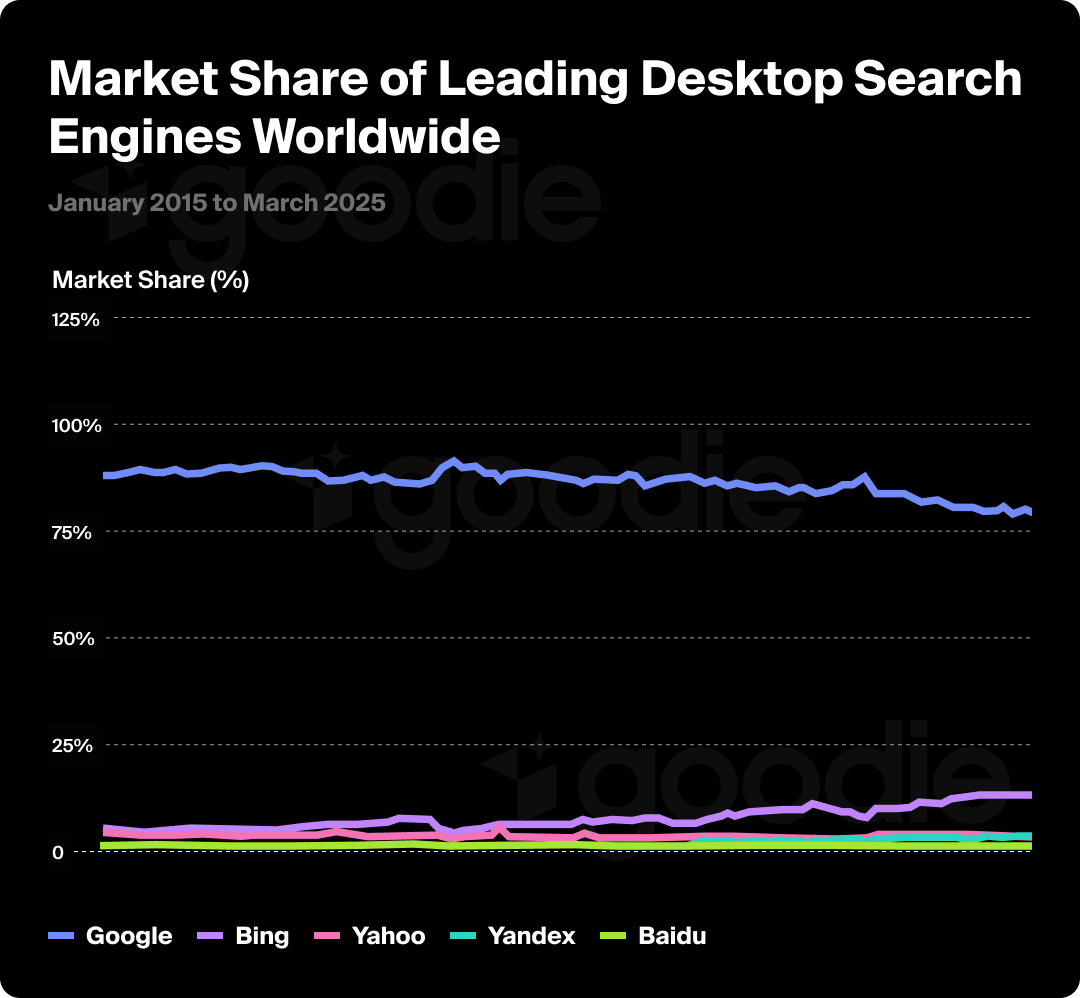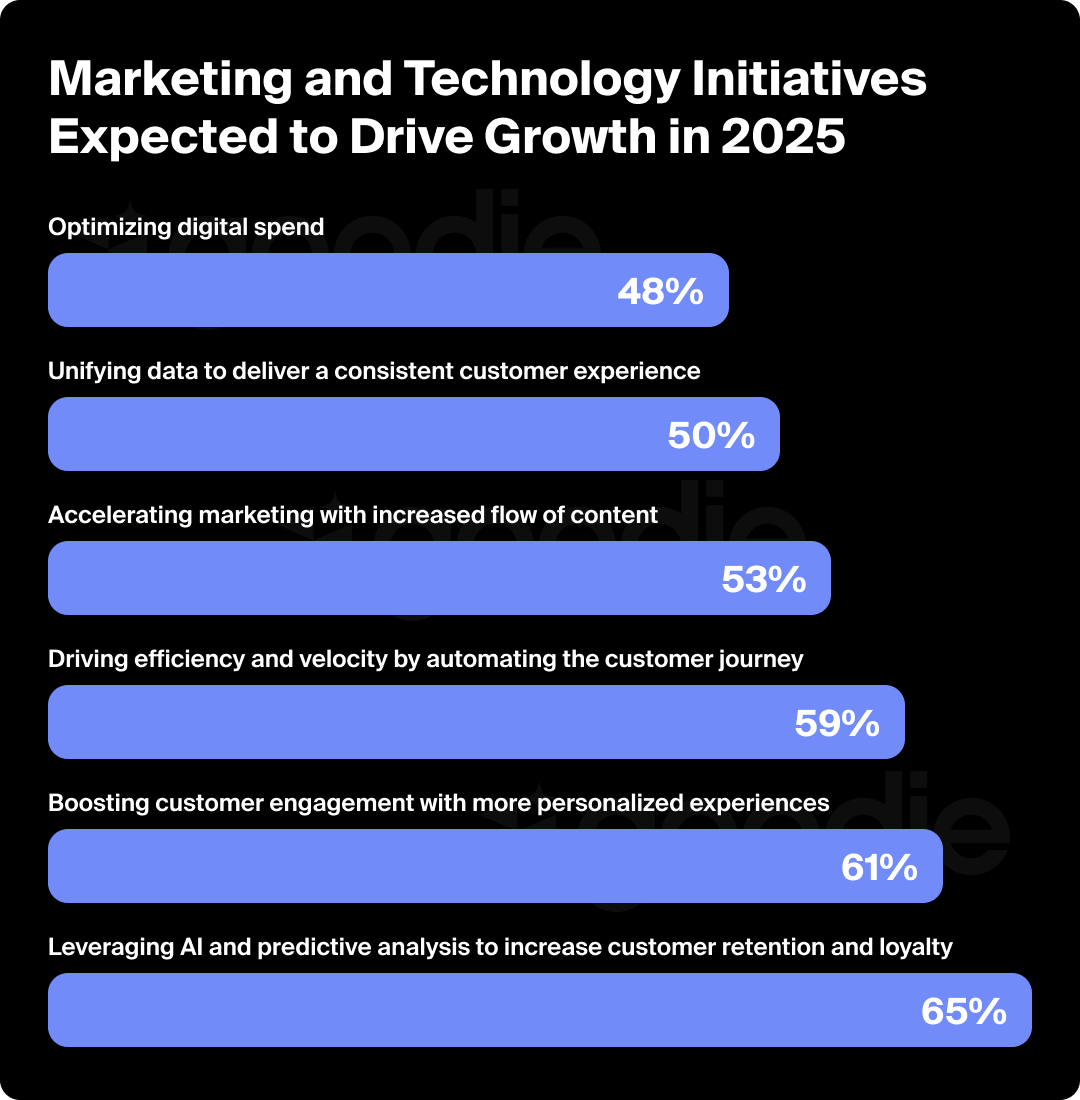

For over two decades, search engine optimization has been the cornerstone of organic marketing strategy. Yet today, we find ourselves amidst a chorus of voices proclaiming, "SEO is dead."
This isn't new. The death of SEO has been prophesied with nearly every algorithm update since Google's inception. Yet, the rise of artificial intelligence, changing user behaviors, and evolving search algorithms has created a perfect storm that threatens traditional SEO practices. Or does it?
Organic traffic numbers are dropping. Featured snippets are cannibalizing clicks. AI answers are keeping users on search pages rather than sending them to websites. These developments have left many wondering: is SEO dead or is it evolving into something new? After analyzing the current state of search and emerging trends, we believe that SEO isn’t dying. It’s being reborn.
Search has reached a pivotal moment. Traditional search engines continue to dominate traffic volume, but AI is disrupting the space. This transformation extends beyond Google's initiatives like Project Astra, Project Mariner, and Gemini 2.0. It encompasses the entire AI ecosystem, including OpenAI's ChatGPT, Anthropic's Claude, and numerous other large language model platforms that are reshaping user expectations about information retrieval.
The traditional SEO model of typing keywords into a search bar, scanning results, and clicking through to websites is being supplemented and in some cases replaced by conversational interfaces that deliver comprehensive answers without requiring users to visit multiple sources.
According to industry analysts at Gartner, traditional search engine volume is projected to drop by 25% by 2026. But this doesn't spell the end of SEO. It signals the beginning of a new chapter where visibility requires more than just ranking on the first page.
Zero-click searches continue to rise as users find answers in Google's AI Overviews without visiting websites. Voice and visual search experiences bypass traditional results pages entirely. The integration of AI assistants with everyday tools creates new entry points that circumvent the traditional SERP ecosystem.
Traffic patterns have begun reflecting these changes. Recent data shows mobile searches per user dropped following the introduction of AI features in May 2024, while desktop searches remained stable.
But these statistics alone don't tell the full story. The decline in traditional search metrics doesn't mean SEO is dead. It means our definition of SEO success needs to evolve.
While AI platforms are growing, they haven't yet displaced traditional search as the primary means of information discovery. As of March 2025, Google maintained a 79.1 percent share of the global desktop search market, its lowest in over 20 years but still well ahead of competitors. Bing held 12.2 percent, while Yahoo and Yandex each accounted for just over 2.9 percent. These figures highlight that, despite shifts in technology, best practices for search optimization remain essential.

Furthermore, AI features like Google's Overviews aren't replacing search. They're enhancing it by handling complex queries in mathematics, coding, and other specialized domains. These capabilities supplement rather than replace the need for authoritative content on specific topics.
Most importantly, we're seeing the emergence of a hybrid approach where successful brands are implementing both traditional SEO and what some are calling "Answer Engine Optimization" (AEO) strategies. This dual approach recognizes that visibility in the modern search environment requires optimization for both human readers and AI systems.

The evidence suggests that SEO isn't dying. It's evolving into something more sophisticated, more integrated with other disciplines, and more focused on delivering value regardless of how users access information.
The transformation of search extends far beyond Google's initiatives. While Project Astra (an advanced AI assistant integrating Search, Maps, and Lens), Project Mariner (a browser automation system), and Gemini 2.0 (the underlying AI model) are significant developments, they represent just one facet of a broader industry shift.
Across the entire tech ecosystem, we're seeing AI search capabilities being integrated into almost every platform and application. From Microsoft's integration of OpenAI technology into Bing and other products to industry-specific AI search solutions in healthcare, legal, and financial sectors, AI is becoming the default interface for information retrieval.
What makes this shift significant is that these AI systems don't just return links. They synthesize information from multiple sources, present it in conversational formats, and maintain context across multiple interactions. This creates what Google describes as an "AI Agent Experience," a holistic approach to search that goes beyond links to deliver personalized, contextual information through natural conversation.
This isn't just a technical change. It represents a fundamental rethinking of what search means and how information is discovered online. Forward-thinking marketers are treating these changes not as threats to SEO but as opportunities to reimagine how they connect with audiences.
Perhaps more important than the technological changes are the accompanying shifts in user behavior. Traditional search's authority is being challenged by emerging preferences and habits.
Users are bypassing Google entirely, turning to app-integrated tools for direct answers without viewing traditional search results. Format preferences are shifting, with younger demographics favoring video-based responses over standard text-based SERPs, signaling a generational move away from conventional search formats.
These changes have profound implications for how we think about SEO success. Traffic to websites can no longer be the sole metric of success; we must now also account for brand visibility within AI responses, citation frequency in synthesized answers, and the ability to establish authority in a more fragmented information environment.
A new generation of "AI-native" users is emerging. These are individuals who interact with the web through AI interfaces rather than traditional search methods. These users rely on assistants to handle complex tasks, prefer conversational interactions over keyword-based queries, and place high levels of trust in AI answers, often accepting synthesized responses without cross-referencing multiple sources.
This behavioral shift requires a fundamental rethinking of how we optimize content. Not just for discoverability but for "AI quotability" and authority in a world where AI systems mediate the relationship between brands and audiences.
The decline in organic search traffic that many websites are experiencing isn't due to algorithmic changes or increased competition. It reflects structural shifts in how search engines deliver information.
Google and other search engines are prioritizing direct answers through features like AI Overviews, offering comprehensive responses that reduce the need for users to visit multiple websites. The introduction of multimodal interaction capabilities enables real-time engagement with AI agents, further replacing traditional navigation patterns.
Together, these changes reflect a strategic pivot from directing users to external websites to delivering complete answers within search engine ecosystems. This isn't a temporary trend or an algorithmic quirk. It's a fundamental realignment of how search engines fulfill their core purpose.
However, this doesn't mean SEO is obsolete. It means that success requires understanding and adapting to these structural changes rather than fighting against them. The brands that thrive will be those that recognize how to provide value within this new ecosystem rather than clinging to outdated metrics of success.
The evolution of search through artificial intelligence represents not a rupture with established practices but rather a sophisticated recalibration of priorities within an expanding digital ecosystem. Seasoned SEO practitioners have long championed quality, structure, and authoritative content—elements that remain foundational yet demand nuanced adaptation within this emergent paradigm.
What distinguishes AI optimization is the fundamental shift in how users encounter information and how platforms mediate these interactions, creating a new relationship between content creators and their audiences.
In the traditional search landscape, keywords functioned as discrete access points to content, with success measured through visibility and click-through rates. The AI search environment, however, operates within expansive conversational territories where users express complex, multi-dimensional inquiries.
Content must now anticipate and address these layered contexts, providing coherent narratives that AI systems can parse, synthesize, and present across varied conversational trajectories. This demands a more sophisticated approach to content architecture, one that maintains human readability while engineering an underlying structure designed for AI extraction and attribution.
Perhaps the most profound transformation lies in what might be termed the "attribution economy" emerging within AI search interfaces. As direct answers satisfy user queries without requiring website visits, the traditional value exchange of SEO (visibility for traffic) evolves into something more nuanced: influence through attribution.
Content creators now compete for representation within AI responses, with success contingent upon creating passages calibrated for self-contained informational units that AI systems can attribute when responding to relevant queries, extending brand presence beyond website boundaries.
The structural relationship between content and discovery platforms continues to evolve as well. Where traditional structured data facilitated categorical understanding, contemporary content architecture must enable seamless extraction of context-independent passages that retain their integrity when separated from their original environment.
This demands a reconceptualization of content as a collection of standalone elements rather than a linear narrative, creating multiple entry points for AI systems to identify, extract, and synthesize relevant information.
A sophisticated content strategy for this emerging ecosystem acknowledges these transformations while implementing concrete adaptations. Developing distinctive "attribution hooks" through unique research, data, or perspective creates signature elements that AI systems gravitate toward when constructing responses.
Crafting "structured narratives" that anticipate conversational query patterns enables content to align with how users interact with search interfaces. Most critically, establishing new metrics that capture influence beyond the boundaries of owned digital properties recognizes that content success transcends traditional engagement measurements.
The most advanced practitioners in this space recognize that optimizing for AI search doesn't require abandoning established principles but rather extending them into new dimensions of user interaction. Success lies in creating content that serves human readers through compelling narratives while engineering for AI systems through strategic structure and attribution design that acknowledges both continuity and transformation in the evolving search landscape.
The signals that establish authority are evolving beyond traditional backlinks to include a broader range of credibility indicators. AI systems assess authority based on entity relevance, evaluating how well a brand or topic connects within a network of related concepts, and citation frequency, with frequent mentions by trusted sources enhancing AI visibility.
Content authored or verified by recognized subject matter experts is prioritized in AI responses, reflecting a shift toward human expertise as a ranking factor. These emerging signals don't replace traditional SEO tactics but add a new layer to how credibility is established in today's search environment.
What's notable about these authority signals is that they can't be manipulated or gamed. They require genuine expertise, consistent value creation, and authentic engagement with topics and communities. This represents a return to the original vision of search, connecting users with the most valuable and relevant information regardless of SEO tactics.
The brands navigating this transition share several key characteristics. They've adopted a multimodal content strategy, producing diverse content types that benefit from native image and audio output in AI systems. They've implemented conversational optimization, structuring content around natural questions and answers that perform better with dialogue-based AI capabilities. They've mapped and optimized for entity relationships rather than just keywords, improving performance in modern search experiences.
These approaches move beyond traditional SEO tactics to embrace a more sophisticated understanding of how AI systems evaluate and represent content. The most successful organizations are those that view these changes as an evolution rather than an extinction event for SEO.
The future of search isn't about choosing between traditional SEO and AI optimization. It's about integrating these approaches to ensure visibility regardless of how users discover information online. SEO isn't dead; it's evolving into something more complex, more challenging, and more rewarding for those willing to adapt.
As we look to the future, the organizations that will thrive are those that understand this fundamental truth: optimization is no longer just about getting traffic. It's about creating value that transcends channels and interfaces. It's about being the best answer, regardless of how that answer is discovered or delivered.
The question isn't whether SEO is dead or alive. The question is whether your organization is ready to evolve alongside it.



